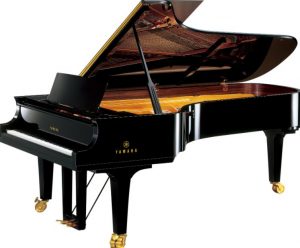The piano is a popular instrument that acts as a great entertainment source, especially in composing music. You can opt for grand pianos or the standard ones. There are many benefits to playing the piano. In addition to the fact that the process itself gives pleasure not only to the player but also to the listeners, this type of activity also positively affects the pianist. Here are the benefits of playing the piano.
Coordination
At the beginning of their journey, children and even adults face the problem of coordination of movements, which is the norm because none of them performed the necessary actions when playing. During the learning process, the student develops coordination between the movements of the hands and fingers, playing alternately or together, and the coordination of the feet on the pedals of the instrument. Various pianistic movements help develop the child’s motor skills and help to relieve muscle stiffness.
of their journey, children and even adults face the problem of coordination of movements, which is the norm because none of them performed the necessary actions when playing. During the learning process, the student develops coordination between the movements of the hands and fingers, playing alternately or together, and the coordination of the feet on the pedals of the instrument. Various pianistic movements help develop the child’s motor skills and help to relieve muscle stiffness.
Memory Development
In the process of learning and subsequent practice, pianists have to memorize a considerable amount of information. This, of course, has a positive effect on the memory of a musician. What’s more, because the piano is considered one of the most difficult tools to learn, regular practice improves the functioning of the frontal lobe of the brain, which is responsible for speech, language acquisition, behavior decision-making, and much more. Yes, let us emphasize why it is much easier for pianists to learn foreign languages.
Imagination
Almost all material and spiritual products in our life have come from imagination. Any product of creativity is primarily a product of our imagination, which means that it is a very important mental function of a person. Special creative assignments in a music school, as well as in the process of individual creative activity (improvisation, inventing something new, etc.), colossally change the work of a person’s imagination, which is useful and even necessary not only in musical activity but also in life.
and spiritual products in our life have come from imagination. Any product of creativity is primarily a product of our imagination, which means that it is a very important mental function of a person. Special creative assignments in a music school, as well as in the process of individual creative activity (improvisation, inventing something new, etc.), colossally change the work of a person’s imagination, which is useful and even necessary not only in musical activity but also in life.
IQ and Thinking
In the process of playing, the pianist always uses both hands, and therefore both hemispheres of the brain are active, in contrast to a non-playing person in whom only one hemisphere most often works. Many scientists believe that playing the piano contributes to a small increase in IQ, but no scientist doubts the development of the mind of a player who plays the piano, which is undoubtedly a huge plus of this activity. How about you play the piano to enjoy these benefits.

